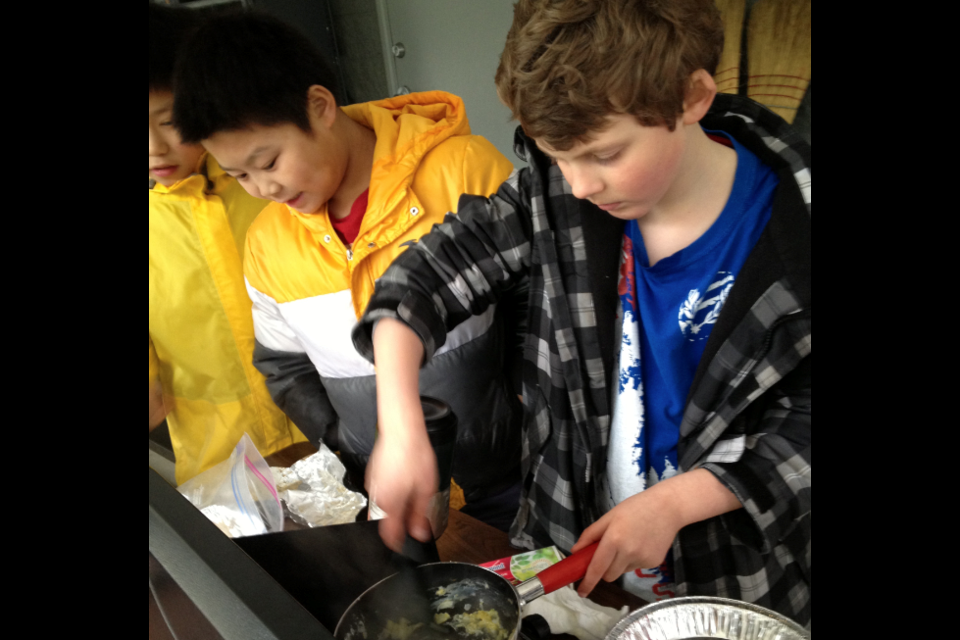Cub Scout leader and proud mom Leeann Froese says when it comes to camp there are many ways to help a child prepare.
Froese, who’s nine-year-old son Nate is enjoying his second year as a Cub Scout, advises gathering as much information as possible prior to your child leaving for camp.
“They need to know how and what to pack and what size pack they’ll need,” said Froese, who’s also co-owner of marketing and design agency Town Hall. “If they’re prepared, that will help them feel independent when they go away.”
Froese said once a child is prepared, they can confidently attend camp. She noted once at camp, children are often too busy to suffer from homesickness.
“They’re up at seven for breakfast and then they’re busy until late. If there’s a campfire they’ll be up past their usual bedtime,” said Froese. “They just don’t have time to get homesick.”
Froese said skills kids learn at camp add to their self-confidence and bolster self-esteem. She added besides outdoor skills, such as archery and canoeing, kids learn life lessons like basic cooking. Froese said even young children are taught how to light a camp stove and cook an egg.
“We teach them the difference between toys and tools so they know things like matches are not to be played with,” said Froese.
Froese said one way to ensure your child is gaining the most from a program such as Scouts is to volunteer as a leader. Scouts Canada has been considered one of the country’s leading youth organizations for more than 100 years. “As a parent I wanted to know what was going on,” said Froese.
“So I decided to get involved.”
To volunteer with Scouts Canada, Froese had to first complete vigorous training in everything from camping to working with children with special needs. “I didn’t even know how to pitch a tent until I took my training,” said Froese. “Now I have my Wood Badge One.”
A free copy of a handbook for parents called Preparing For Camp is available on the Our Kids Go To Camp website at ourkids.net, an information resource for Canadian schools and camps. The following is some advice from the handbook on preparing your child for camp.
Campers in training
- Learn about camp by checking websites.
- Sleep over at a friend or relative’s house for practice.
- Practise bed-making and organizing belongings.
- Help with the shopping and packing. Campers who know what belongings are going to camp will have a better chance of recognizing a lost item when it’s held up in the dining room.
- Talk to friends about their camp experiences.
- Think about what they want to do and achieve at camp.
Tips for parents
- Complete all forms with accurate and current information and submit them on schedule.
- Attend orientation meetings. The more a child knows about the staff, program and other campers the easier his introduction to camp will be. Some camps host open house events on the property or in urban centres where a number of campers reside.
- Label all items on the outfit and equipment list. Iron-on labels adhere well to fabric while permanent markers or bright nail polish are suitable for other items. Label everything. There may be dozens of identical disposable cameras, sleeping bags or shoes at camp. Most directors advise not to pack anything of value.
- Pack well-worn clothes the child is about to outgrow. Campers do not need the stress of keeping good clothes free of stains and pine gum. Include a list of all items to increase the odds of everything returning home.
- Attend to medical matters. If your child is taking a prescription medicine, send an adequate supply in the original container.
- Involve your child every step of the way so there are no surprises.



